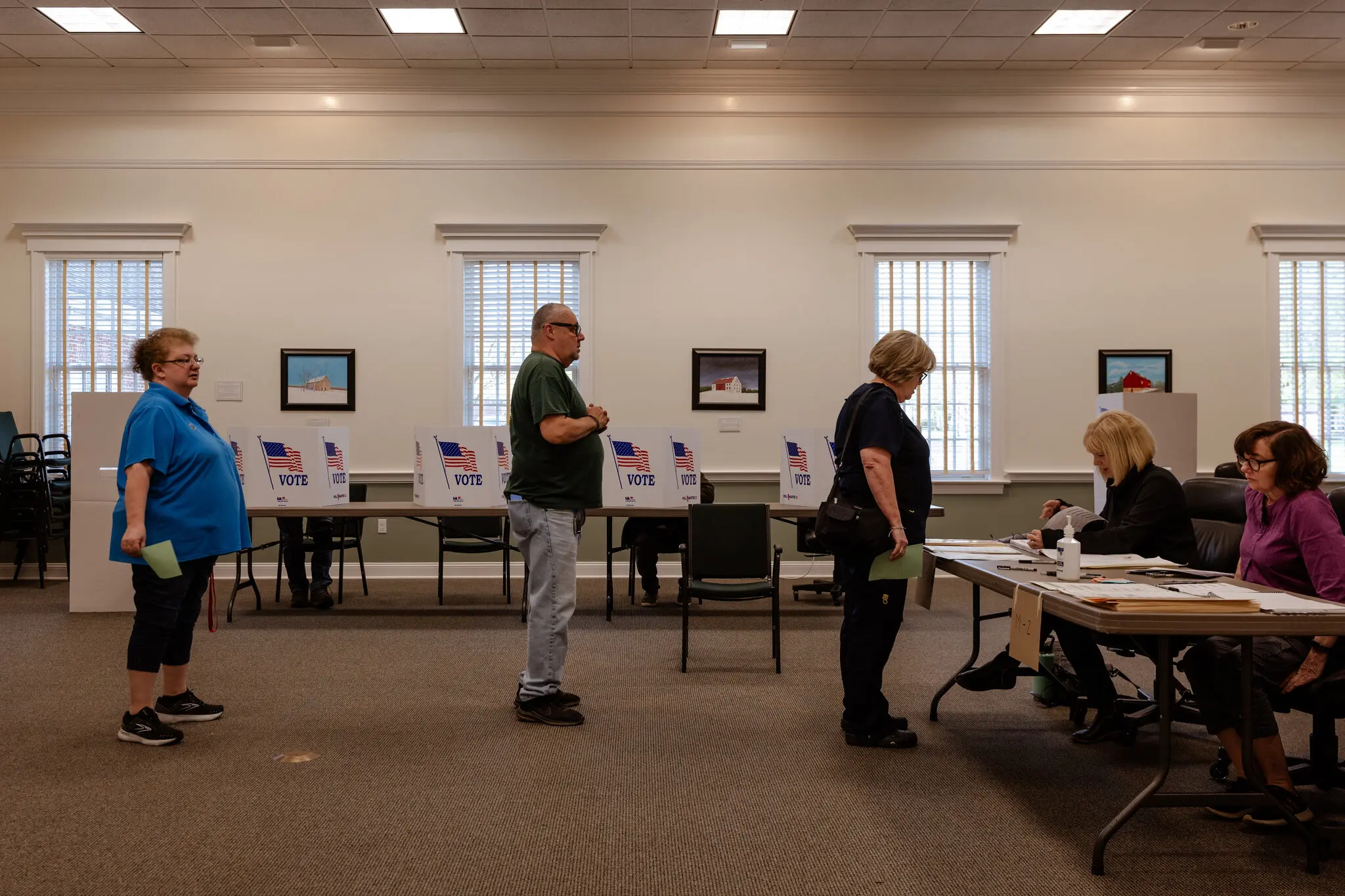As the presidential campaigns of Donald J. Trump and Kamala Harris near their last weeks, their respective legal teams are also putting up their last efforts.
An aggressive legal approach has been stepped up by Trump backers and the Republican National Committee in recent weeks, with a flood of election lawsuits filed throughout battleground states.
The primary goal of the lawsuits is to change the election rules in the days leading up to the election, but they might also pave the way for Mr. Trump to attempt to reverse the results, as he did in 2016.
Meanwhile, Democrats are turning to the courts to fight back against last-minute attempts by certain election officials to alter the certification and counting of votes.
Although there will certainly be more cases in the weeks leading up to Election Day, here are five to keep an eye on:
A Conflict Regarding Pennsylvania’s Ballot Inaccuracies
Since Democrats extensively used mail-in ballots in the 2020 election, Republicans have been trying to discredit them.
More than 20 lawsuits pertaining to postal voting have been filed by Republicans this cycle. These lawsuits attempt to invalidate any mail ballot that does not fully comply with state law and to prevent voters from having the chance to correct a mistake on their ballot.
Voters in Pennsylvania should not be advised of or given the opportunity to correct mistakes on their mail-in ballots, according to a lawsuit filed last week by the Republican National Committee and local attorneys. This process is called “curing.” Twice before, in 2020 and 2022, Republicans attempted to contest this procedure, but they were unsuccessful.
Republicans just won a comparable lawsuit, and now they’re challenging Pennsylvania’s curing clause. Ballots without dates on the outside envelope could not be considered, according to the State Supreme Court’s ruling in that case. There has been an appeal of the verdict.
Dispute Over Late Ballots in Mississippi
In January, a lawsuit was presented in U.S. Federal District Court by the Republican National Committee and the Mississippi Republican Party, contesting the policy of Mississippi regarding late-arriving mail-in ballots. So long as they are postmarked on Election Day and arrive within five days, the state has traditionally accepted such ballots. It is said by Republicans that this goes against federal law. The Seventh Circuit U.S. Court of Appeals has already denied a comparable lawsuit in Illinois.
In the Mississippi case, a judge ruled against Republicans in July. This case is currently being reviewed by the Fifth Circuit U.S. Court of Appeals.
The eventual outcome, according to experts, will be an appeal to the United States Supreme Court. The decision of the high court could affect all states that allow late ballots—including California, Nevada, New York, and Texas—should it decide to hear the case.
Republican Efforts to Sway Arizona and Other Voters
Many people who aren’t entitled to vote are still on the rolls, which has been a long-standing Republican gripe.
However, the number of lawsuits filed by Republicans with the goal of “cleaning” the rolls has increased dramatically this year. The main reason for this is the proliferation of baseless accusations that Democrats are enrolling millions of unauthorized immigrants.
This month, a right-wing operative-led group called Strong Communities Foundation of Arizona sued the state of Arizona in state court, asserting that the state’s voter registers contained noncitizens. Claims in the case are based on statistics and surveys conducted in other states. This was contended by America First Legal, an organization headed by Stephen Miller, a staunch supporter of strict immigration policy and a close associate of President Trump.
The matter was challenged by the Harris-Walz campaign and the Democratic National Committee, who contended that it was in violation of a federal statute that forbids authorities from deleting names from the voter rolls within ninety days preceding an election. Democrats raised concerns about the timing in their filing, stating, “This perplexing strategy begs the question: Why?”
A Fight Between Democrats and the Georgia State Board of Elections
After the state electoral board in Georgia allowed its members to perform a “reasonable inquiry” into election results before certifying them, the Democratic National Committee and the Georgia state party took legal action by suing. Both the party and outside experts have voiced concerns that an investigation may be employed to delay the officialization of the results. The Democrats have petitioned the court to order the certification to be completed by the specified date stipulated by the state statute.
Local and state election boards’ certification processes, which were mundane and unremarkable until 2020, became a contentious subject when Mr. Trump and his associates sought to dissuade local officials from certifying the results in an effort to nullify the election. Ever since, there has been an effort by Democrats and others to strengthen the guarantee of a seamless certification process.
The trial is set to take place on October 1st.
In Arizona, Observing the Vote
Multiple lawsuits against initiatives to restrict intimidation of election workers or voters have been brought by Republicans. New regulations prevent individuals from disparaging poll workers and voters, interfering with or harassing voters while they deposit ballots at drop boxes, and other similar offenses. In February, a conservative charity known as the Arizona Free Enterprise Club challenged these regulations in state court. It was the group’s contention that the regulations would curtail the free expression of political opinion.
America First Policy Institute, an organization headed by Trump associates, is the one suing over this matter.
The court put a temporary halt to the clauses’ implementation in July. While the lawsuit is pending, the state has requested that the judge let it to maintain rule enforcement.









